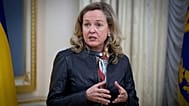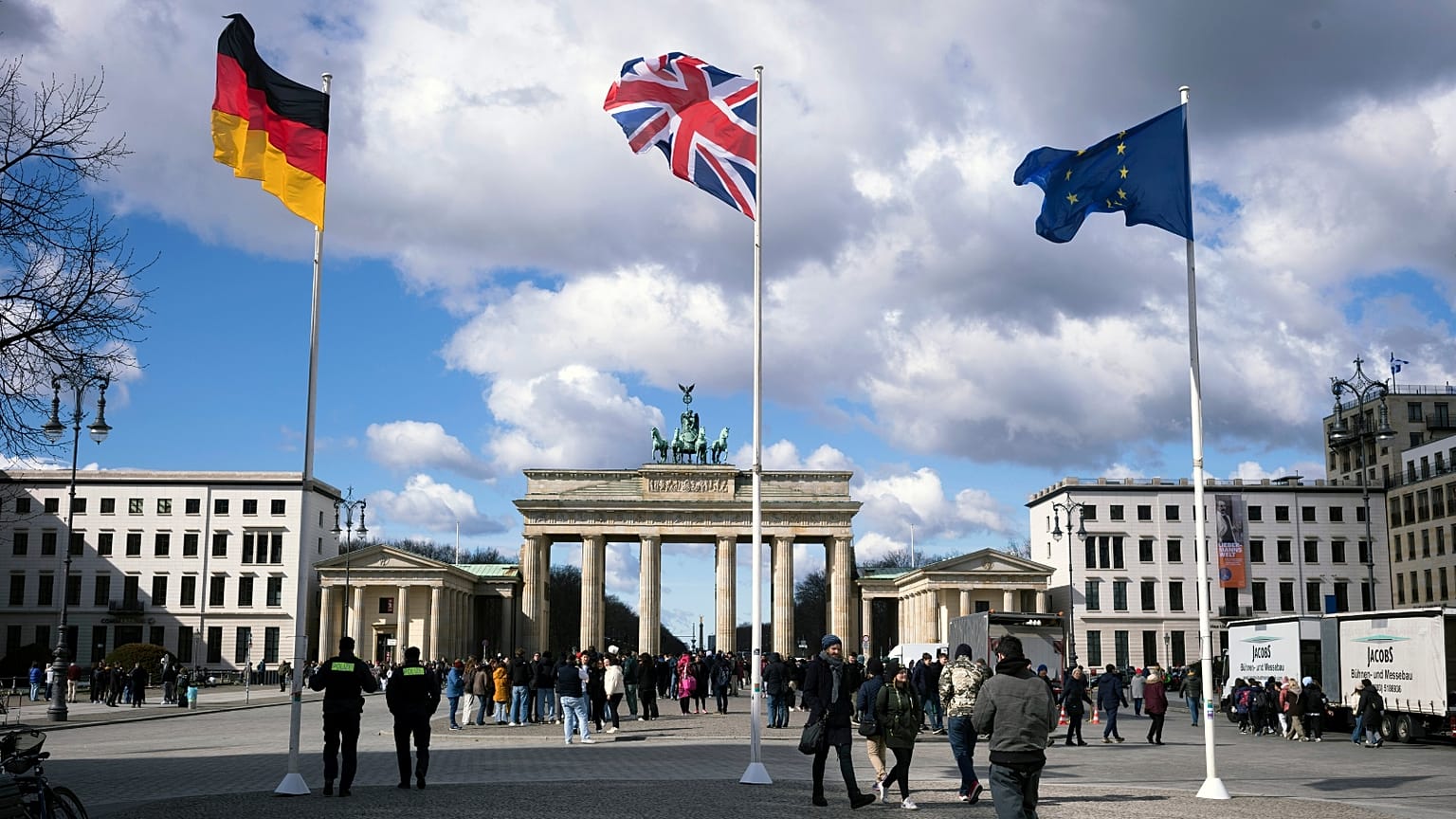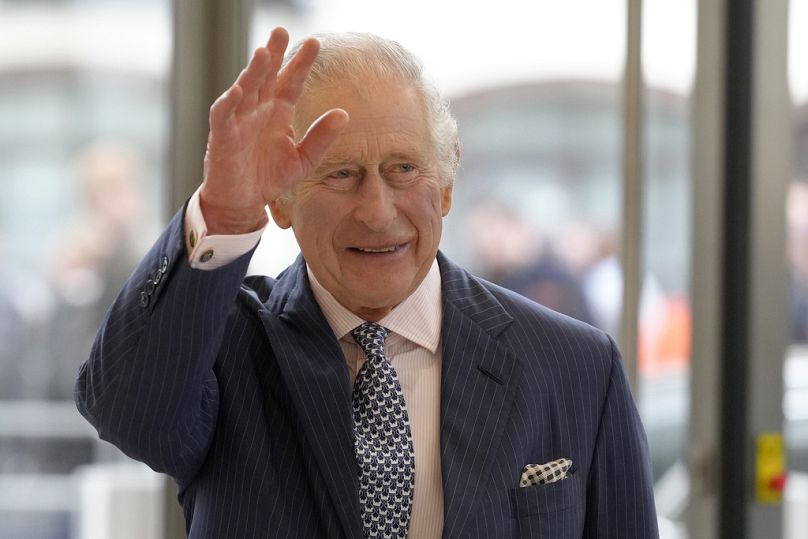Charles and Queen Consort Camilla were welcomed to Germany by President Steinmeier at the historic Brandenburg Gate.
Britain's King Charles III began his first state visit in Germany on March 29th, rather than France, which was originally envisaged.
The trip with Queen Consort Camilla comes three days later than where it was intended in Paris, but the first leg of the royal visit was postponed amid ongoing strikes and civil unrest over the government's pension reform plans.
Whether it was to be France or Germany first, re-building diplomatic bridges with Europe after Brexit was always going to have been top of the agenda.
Billed as a multi-day tour of the European Union’s two biggest countries, the trip was designed to underscore British Prime Minister Rishi Sunak’s efforts to rebuild relations with the bloc after six years of arguments over Brexit and highlight the countries’ shared history as they work together to combat Russian aggression in Ukraine.
Britain's royal family has also got historic links with Germany - Queen Victoria's mother was German and the family had the German surname of Saxe Coburg Gotha until it became unpopular during the first World War.
It was then changed in 1917 to the much more British sounding name Windsor.
What will Charles and Camilla do in Germany?
The truncated trip starts Wednesday in Berlin, where German President Frank-Walter Steinmeier will welcome Charles and Camilla at the historic Brandenburg Gate.
The king is scheduled to give a speech to the Bundestag, Germany’s parliament, on Thursday. He will also meet Chancellor Olaf Scholz, talk to Ukrainian refugees and meet with British and Germany military personnel who are working together on joint projects.
The royal couple go to Hamburg on Friday, where they will visit the Kindertransport memorial for Jewish children who fled from Germany to Britain during the Third Reich, and attend a green energy event before returning to the U.K.
The king was urged to make the trip by Sunak, who during his first six months in office negotiated a settlement to the long-running dispute over post-Brexit trading rules for Northern Ireland and reached a deal with France to combat the people smugglers ferrying migrants across the English Channel in small boats. Sunak hopes goodwill created by a royal visit can help pave the way for progress on other issues, including Britain’s return to an EU program that funds scientific research across Europe.
This is the first big test of whether Charles can be an effective conduit for the “soft power” the House of Windsor has traditionally wielded, helping Britain pursue its geopolitical goals through the glitz and glamor of a 1,000-year-old monarchy.
The Windsors are among the most recognisable people on the planet. While their formal powers are strictly limited by law and tradition, they draw attention from the media and the public partly because of the historic ceremonies and regalia that accompany them — and also because the public is fascinated by their personal lives.
The late Queen Elizabeth II was the embodiment of this — the monarch everyone wanted to meet for tea, if for no other reason than that she’d been around so long.
Elizabeth’s influence stemmed in part from the fact that she made more than 100 state visits during her 70 years on the throne, meeting presidents and prime ministers around the world in a reign that lasted from the Cold War to the information age.
But questions remain about whether Charles has the same star power as his mother, dubbed “Queen of the World” by one biographer, Robert Hardman.
Charles has fewer years to make his mark and will not try to copy her, said Bronwen Maddox, who heads the Chatham House public affairs think tank in London.
“He’s getting this (opportunity) towards the end of his life, and it’s very much a chance to make the best of it without claiming that it is the same, in any way, as his mother,’’ she said. ‘‘I think he will find his own way to do it.’’
Charles, a former naval officer who is the first British monarch to earn a university degree, is expected to insert heft where his glamorous mother once wielded star power.
As Britain’s head of state, the king meets weekly with the prime minister and retains his mother’s role as leader of the Commonwealth.
His visit to Germany will showcase these roles while also giving him an opportunity to highlight the causes he holds dear, like sustainability and the environment.
But there will also be a full dose of the pomp and circumstance that screams royal visit, starting with a ceremonial welcome at the Brandenburg Gate, the neoclassical landmark in the centre of Berlin that has provided the backdrop to so much of German history. White tie and tiaras are expected to be on display during a state dinner at Schloss Bellevue, the German president’s official residence.
There will be plenty, therefore, to attract the crowds in Germany and demonstrate to people back home that Charles has eased into the role of monarch and chief diplomat.
“In some ways, Charles does not have to do very much for people to follow him because there’s the mystique of the institution,’’ Chernock said. “I think people are fascinated by his family and all of the drama surrounding it. So he could stand perfectly still and not utter a word and he would still draw crowds.”
















